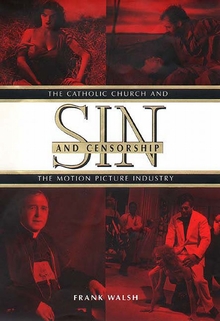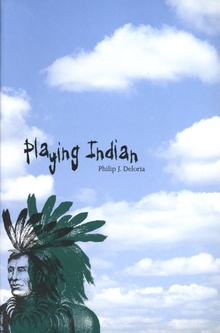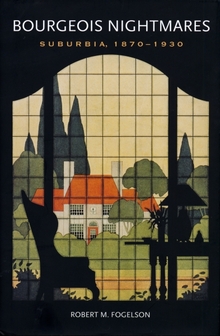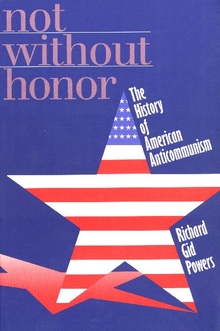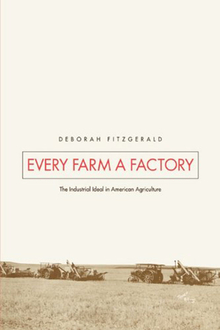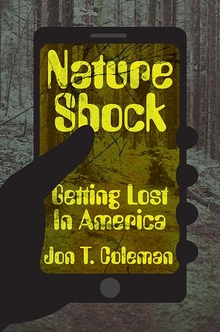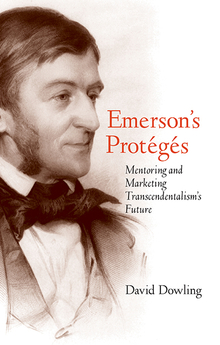Sin and Censorship
WARNING
You are viewing an older version of the Yalebooks website. Please visit out new website with more updated information and a better user experience: https://www.yalebooks.com
The Catholic Church and the Motion Picture Industry
Frank Walsh
Frank Walsh tells how the church's influence in Hollywood grew through the 1920s and reached its peak in the 1930s, when the film industry allowed Catholics to dictate the Production Code, which became the industry's self-censorship system, and the Legion of Decency was established by the church to blacklist any films it considered offensive. With the industry's Joe Breen, a Catholic layman, cutting movie scenes during production and the Legion of Decency threatening to ban movies after release, the Catholic church played a major role in determining what Americans saw and didn't see on the screen during Hollywood's Golden Age.
Walsh provides fascinating details about the church's efforts to guard against anything it felt might corrupt moviegoers' morals: forcing Gypsy Rose Lee to change her screen name; investigating Frank Sinatra's fitness to play a priest in Miracle of the Bells; altering a dance sequence in Oklahoma; eliminating marital infidelity from Two-Faced Woman; compelling Howard Hughes to make 147 cuts in The Outlaw; blocking the distribution of Birth of a Baby; and attacking Asphalt Jungle for serving the "crooked purposes of the Soviet Union." However, notes Walsh, there were serious divisions within the church over film policy. Bishops feuded with one another over how best to deal with movie moguls, priests differed over whether attending a condemned film constituted a serious sin, and Legion of Decency reviewers disagreed over film evaluations. Walsh shows how the decline of the studio system, the rise of a new generation of better-educated Catholics, and changing social values gradually eroded the Legion's power, forcing the church eventually to terminate its efforts to control the type of film that Hollywood turned out. In an epilogue he relates this history of censorship to current efforts by Christian fundamentalists to end "sex, violence, filth, and profanity" in the media.
"Frank Walsh's Sin and Censorship, by virtue of its superb analysis of the role of the Catholic church in drafting and administering the erotic part of Hollywood's "production code" takes an esteemed place on the shelf next to Gregory Black's Hollywood Censored."—Thomas Cripps, University Distinguished Professor, Morgan State University, Baltimore
"Walsh's book is neither a sociological nor a psychological study but a fact-laden account that will take many readers on a sentimental journey in its summaries of specific films and the conflicts surrounding them. He concludes that the cure was often worse than the disease. Unique in its breadth, this work is recommended for media and religious collections."—Anna M. Donnelly, Library Journal
"[Walsh] takes us on a journey with the self-righteous that is often hilariously conveyed. . . . A heavily footnoted academic history of a topic that will be of special interest to film historians and anticensorship guardians."—Publishers Weekly
"Sin and Censorship offers a thoughtful case study of the recurring 20th-Century American tendency to object to particular forces in the marketplace while extolling those forces in the abstract."—Maureen Corrigan, New York Newsday
"A meticulous, fascinating account of the moral confrontation between the Catholic Church in the United States and the motion-picture industry."—Joe Wakelee-Lynch, Philadelphia Inquirer
"An original, readable, and witty account of an important subject—the Catholic Church's attitudes toward and influence on Hollywood."—Leonard J. Leff, coauthor of The Dame in the Kimono: Hollywood, Censorship, and the Production Code from the 1920s to the 1960s
"A humorous but critical portrayal of the Catholic Church's censorship of Hollywood movies from World War I to the present....Walsh dramatically highlights tensions between Catholic dogma and Hollywood glitter."—Kirkus Reviews
"Lively anecdotes....A thoughtful case study of the recurring 20th-Century American tendency to object to particular forces in the marketplace while extolling those forces in the abstract."—Maureen Corrigan, New York Newsday
"[A] meticulous fascinating account of the moral confrontation between the Catholic Church in the United States and the motion-picture industry."—Joe Wakelee-Lynch, Philadelphia Inquirer
"Walsh is at his best when he is handling the details of the Legion's crusades. His touch is light and amusing, highlighting the absurdities of the Catholic position without ever sneering."—Peter Stanford, New Statesman & Society
"This witty and enjoyable book about an important subject throws new light on the ever-continuing debate over film censorship. It gives food for thought to those [who] welcome the comparative freedom the cinema now has—and to those who might yearn for a revival of something resembling the Legion of Decency."—CTA Bulletin
"A painstaking . . . narrative that echoes the themes of many a movie: the quest for power, the fate of ambition, the price of righteousness."—Joan Shelley Rubin, New York Times Book Review
"This book recounts in fascinating detail how the Roman Catholic Church came to be the arbiter of what the film makers of Hollywood could decently portray on celluloid."—Robert Nowell, Church Times
"Exhaustively researched and thoroughly engaging. Though specifically a history of the Catholic Church's efforts to regulate morality in Hollywood. . . . The book is also a calm and convincing argument against unbridled censorship, a cure that Walsh considers worse than the disease."—Seven Arts
"An interesting survey of a large number of films that were edited in response to criticism from the National Legion of Decency. Walsh is sensitive to the subtleties in censoring scripts, pictures, and dialogue, as well as to the influence of the legion and the church hierarchy on some casting decisions. Particulary compelling is his discussion of films of special interest to the church such as Joan of Arc."—Nancy J. Rosenbloom, The Journal of American History
"Sin and Censorship tells the little-known story of the rise and fall of the Legion of Decency, the most powerful and successful instrument in the Catholic church's crusade to rid the movies of vice and vermin. . . . Walsh is often entertaining, always scholarly, never stuffy. His book is for the serious reader willing to venture into a dense forest of details and to invest considerable time and effort following the sometimes convoluted twists and turns in the story of the most successful pressure group in the history of movies."—Christian Koontz, National Catholic Reporter
"[Walsh] has woven his research into a lively, engaging account of a time whose standards were far different from our own. . . . Those who believe excessive depictions of sex and violence can be eliminated from today's movie screens by reinstituting the Motion Picture Production Code and the Legion of Decency need to read this book."—Henry Herx, Christian Century
"If the Academy of Motion Picture Arts and Sciences had a category for the 'best book' of the year, one of the chief contenders for the 1996 award would surely be this treatise. . . . It accurately and yet candidly tells the story of how the Catholic Church became 'the most successful pressure group in the history of the movies and why it was eventually forced to relinquish its power."—Francis J. Weber, Catholic Historical Review
"If the Academy of Motion Picture Arts and Sciences had a category for the 'best book' of the year, one of the chief contenders for the 1996 award would surely be this treatise. . . . It accurately and yet candidly tells the story of how the Catholic Church became 'the most successful pressure group in the history of the movies and why it was eventually forced to relinquish its power.'"—Msgr. Francis J. Weber, Southern California Quarterly
"A meticulously detailed, comprehensive, yet accessibel account of the Catholic Church's complicated relationship with the U.S. motion picture industry from about 1914 to the 1990s."—Carolyn Anderson, Journal of Popular Film & Television
"Walsh presents a timely and well-written account of this unfinished struggle."—Alison M. Parker, Historical Journal of Film, Radio and Television
"Walsh's research is especially deep and broad. . . . Such thoroughness allows . . . Walsh to recover the inner history of those campaigns to save Americans (as the crusaders saw it) from the ruinous consequences of letting their impulses loose in an amoral marketplace of words and images."—Francis G. Couvares, American Quarterly
"Sin and Censorship presents a carefully crafted analysis of the rise and decline of organized Catholic efforts to influence Hollywood, while treating readers to a thoughtful and witty argument against censorship. . . . This accessible and thoroughly researched work belongs in all college libraries since it documents the powerful Catholic influence exerted in Hollywood during the golden age of cinema. It should appeal to scholars and the general readers who seek to understand the film industry, religious influences on popular culture, and changing standards of morality."—Anne Klejment, Church History
"This is a fascinating and well-written book. Film buffs and historians of popular culture, in particular, will treasure it."—Caryn E. Neumann, Journal of Women's History
"Sin and Censorship will please scholars and general readers as both religious and cultural history, and will be standard work on its subject for a long while."—Una M. Cadegan, Catholic Southwest: A Journal of History and Culture
Publication Date: March 27, 1996
31 b/w illus.

